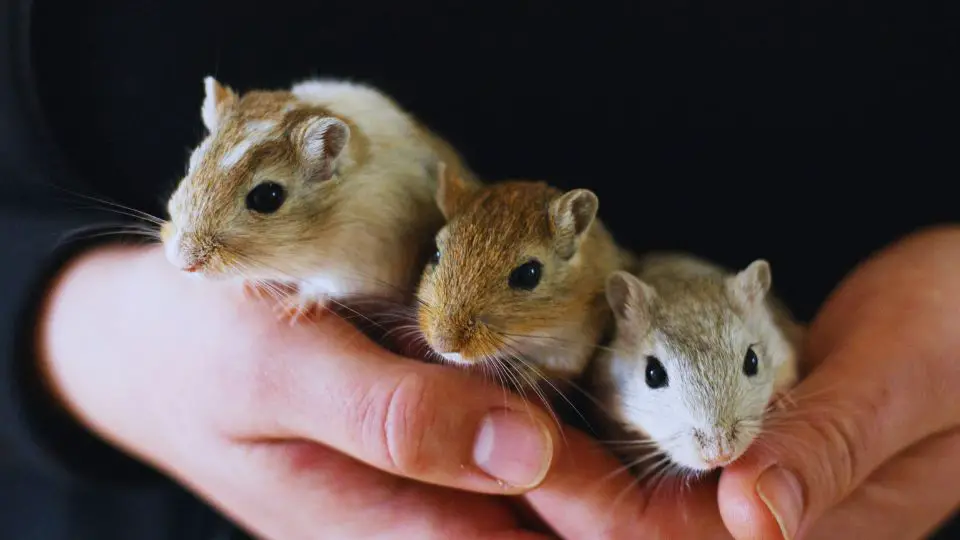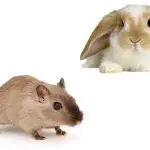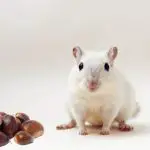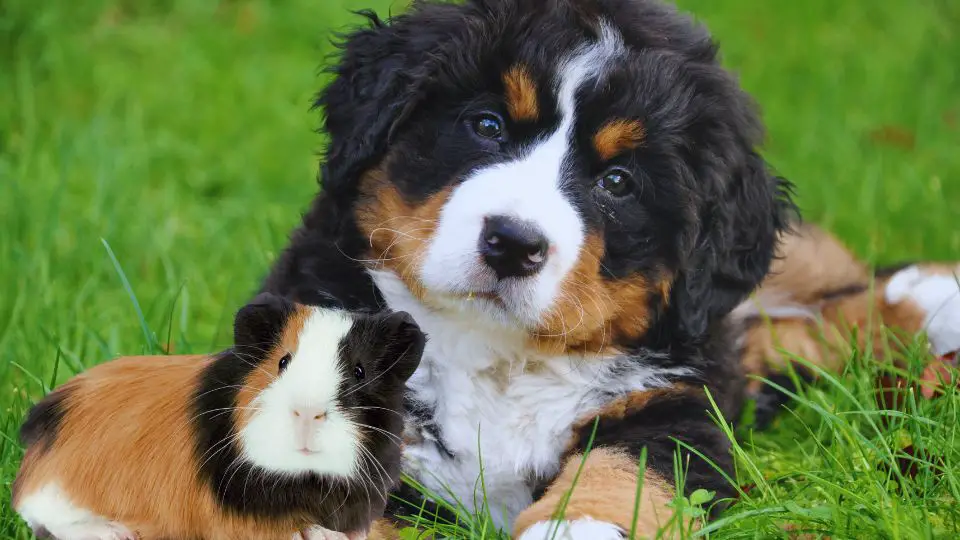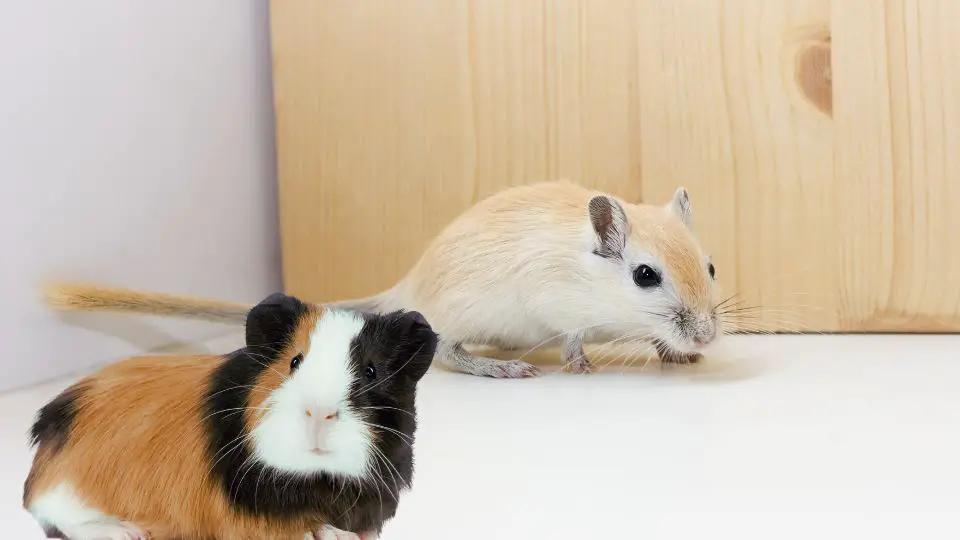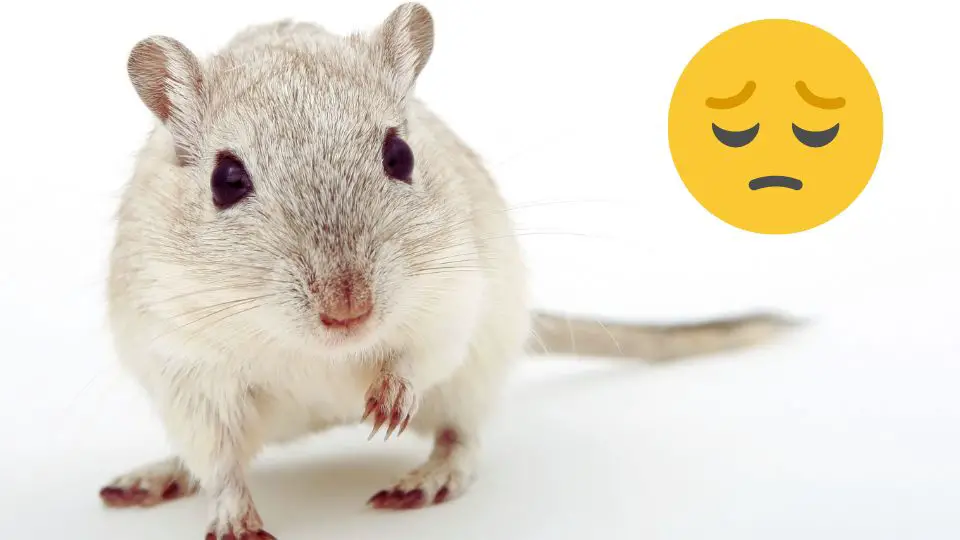Congratulations on the arrival of new gerbil babies! Welcoming these tiny bundles of joy into your gerbil family is an exciting and rewarding experience.
However, it’s important to know what steps to take to ensure the health and well-being of the mother gerbil and her newborns.
In this article, we will provide you with guidance on what to do if your gerbil has babies, from creating a suitable birthing environment to monitoring their development and providing proper care.
Recognize the Signs of Pregnancy
If you suspect that your female gerbil may be pregnant, you have to recognize the signs of pregnancy to provide appropriate care and preparation. Gerbil pregnancies typically last around 24 to 26 days, and being able to identify the signs can help you ensure a safe and comfortable environment for the expectant mother.
During pregnancy, female gerbils undergo several noticeable physical changes. These changes may include:
- Abdominal Enlargement: As the pregnancy progresses, you may observe a gradual increase in the size of the female gerbil’s abdomen. The growing embryos cause the belly to expand, becoming more noticeable as the due date approaches.
- Nipple Development: Another physical change to look for is the development of prominent nipples. The nipples become more pronounced and may appear larger or darker in color. This is due to the preparation of the mammary glands for nursing the newborns.
Nesting Behaviors and Increased Appetite
In addition to physical changes, pregnant gerbils exhibit specific behaviors related to nesting and appetite. These behaviors include:
- Nest Building: Pregnant gerbils have a natural instinct to prepare a safe and comfortable nesting area for their upcoming litter. You may observe the female gerbil collecting bedding materials, such as paper or soft bedding, to create a nest. She will spend more time arranging and burrowing in the nesting area, exhibiting her maternal instincts.
- Increased Appetite: Pregnant gerbils typically experience an increased appetite. You may notice the expectant mother consuming larger quantities of food and water to meet the nutritional demands of her growing litter. Ensure a readily available supply of fresh food and water to support her increased dietary needs during this time.
Note that some of these signs, such as abdominal enlargement or nest-building behavior, can also be observed in non-pregnant gerbils. Therefore, you should look for multiple signs and consider the timing of mating or potential exposure to a male gerbil to confirm pregnancy.
Create a Suitable Birthing Environment
Congratulations on your pregnant gerbil! Now it’s time to prepare a comfortable and safe birthing environment for her and her soon-to-arrive babies. By providing a suitable space, you can help ensure a smooth and stress-free experience for both the mother and her little ones.
Providing a Separate Birthing/Nesting Box:
Offer a separate birthing/nesting box for your pregnant gerbil. This box will serve as a cozy and private space where she can safely give birth and care for her newborns. Choose a box that is spacious enough for her to move around comfortably but small enough to retain heat and provide a sense of security. A sturdy cardboard box or a specially designed nesting box can work well.
Ensuring a Warm and Quiet Environment:
Maintaining a warm temperature is essential for the well-being of the gerbil and her babies. Aim for a temperature range of around 70-75°F (21-24°C) in the birthing area. You can achieve this by placing a heat source, such as a low-wattage heat lamp or a heating pad, nearby but not directly inside the nesting box. Ensure that the heat source is well-regulated and doesn’t overheat the area. Additionally, you should minimize noise and disturbances around the birthing environment to provide a calm and quiet atmosphere.
Offering Extra Nesting Materials:
To help your gerbil create a comfortable nest for her newborns, provide extra nesting materials. Soft bedding material, like shredded paper, tissue, or nesting fluff, works well. Place a generous amount of nesting material inside the birthing box, allowing the mother to burrow and build her nest as she desires. The nesting materials provide insulation, warmth, and a sense of security for both the mother and her babies.
Remember, each gerbil is unique, and preferences may vary. Monitor the nesting materials to ensure they are safe and suitable for your gerbil and her babies. Avoid materials that are dusty, toxic, or pose a risk of entanglement.
The Birthing Process
Brace yourself for an incredible journey as your gerbil prepares to bring new life into the world! The birthing process in gerbils is a remarkable event that showcases the marvels of nature.
Onset of Labor
As the birthing process begins, you may notice subtle changes in your gerbil’s behavior. She may become more restless, exhibiting nesting behaviors, and rearranging her bedding in preparation for the upcoming arrival. Keep a close eye on her for signs of labor, which may include pacing, frequent urination, and an increased need for nesting materials.
Labor and Delivery
During the labor stage, your gerbil will experience contractions as she works to deliver her babies. You may observe her adopting a curled position, showing signs of discomfort, and sometimes emitting soft squeaks. Be patient and avoid unnecessary intervention during this stage, as your gerbil instinctively knows how to handle the birthing process. Trust in her natural abilities as she brings new life into the world.
Arrival of Gerbil Babies
As each baby gerbil arrives, your gerbil will likely clean them immediately to remove any birth sac and stimulate their breathing. This process helps ensure the babies are healthy and breathing properly. Your gerbil’s maternal instincts kick in as she nurtures her newborns and keeps them warm within the nest. It’s a joyous sight to behold!
Maternal Care and Nursing
In the days following birth, your gerbil will continue to care for her babies diligently. She will nurse them, keeping them nourished with her milk, which provides essential nutrients for their growth and development. Avoid handling the newborns unnecessarily during this delicate period to minimize stress on the mother and the babies.
Growing Up
Over time, the little gerbil babies will start to grow and explore their surroundings. They will gradually become more active, developing their own unique personalities. It’s a delight to watch them mature and witness their playful interactions with their siblings.
Be Patient and Allow the Mother to Handle the Birthing Process
Once your gerbil is in her birthing/nesting box, you should be patient and allow her to manage the birthing process on her own. Gerbils are instinctively equipped to handle the entire process without human interference. They have evolved to give birth independently, and their natural instincts guide them throughout the process. Trust in your gerbil’s ability to handle this miracle.
Avoid Unnecessary Intervention Unless Complications Arise
In most cases, gerbils give birth smoothly and without complications. It’s essential to avoid unnecessary intervention, such as handling the newborns or disturbing the birthing environment unless there is a clear need. Frequent disruptions can cause stress and anxiety for the mother, potentially disrupting the birthing process. Trust that your gerbil knows what to do and allow her to nurture her babies without unnecessary interference.
Separate the Male Gerbil
Male gerbils can have a strong drive to mate, even shortly after the birth of a litter. To avoid any unwanted pregnancies and potential stress on the mother gerbil, it’s essential to separate the male gerbil as soon as possible. Accidental mating can lead to further pregnancies and may put additional strain on the mother’s health.
Separating the male gerbil is crucial to ensure the safety of the newborns. Male gerbils may not have the natural instincts to care for or be gentle with the babies. They might accidentally harm or even kill the fragile newborns. By removing the male gerbil from the vicinity, you provide a secure and peaceful environment for the mother and her babies to thrive.
How to separate the male gerbil
Separating the male gerbil can be accomplished by moving him to a separate enclosure or cage. Ensure that the new living space for the male gerbil is comfortable, clean, and adequately equipped with food, water, and suitable enrichment to keep him happy and stimulated.
Caring for the Newborn Gerbils
Congratulations on the arrival of the adorable gerbil babies! As a responsible pet owner, it’s essential to provide the best care for these tiny bundles of joy during their early weeks of life.
Check for healthy, active babies
After the gerbil babies are born, check on their well-being regularly. Healthy newborn gerbils will appear plump, have clear eyes, and exhibit strong movements. They should be active, wriggling around the nest and actively seeking their mother’s milk.
If you notice any signs of illness, such as lethargy, discharge from the eyes or nose, or weight loss, consult a veterinarian experienced in small animal care for guidance and appropriate treatment.
Avoid excessive handling during the first few weeks
During the first few weeks of their lives, newborn gerbils are delicate and highly dependent on their mother. You should minimize handling during this period to reduce stress on the babies and the mother.
Frequent handling can disrupt their bonding and cause unnecessary anxiety. Allow the mother gerbil to care for her babies undisturbed, only intervening if necessary for health checks or emergencies.
Monitor the mother’s care and milk production
The mother gerbil plays a vital role in the care and nourishment of her offspring. Observe her interactions with the babies and ensure she is providing adequate maternal care. The mother should be regularly nursing her babies, and you can monitor this by observing the feeding sessions.
A healthy mother will have a good milk supply and actively nurse her babies. If you notice any issues with the mother’s care or milk production, consult a veterinarian for advice and support.
Why Has My Baby Gerbil Died?
Losing a baby gerbil can be a heartbreaking experience, and it’s natural to seek answers about why it happened. While it’s difficult to determine the exact cause without a thorough examination by a veterinarian, several factors could contribute to the unfortunate loss.
- Congenital Issues: Some gerbils may have underlying health conditions or genetic abnormalities that can impact their overall health and survival. These issues may not be apparent at birth and can lead to the premature death of a baby gerbil.
- Insufficient Care: Inadequate care during the early stages of life can result in the loss of baby gerbils. This can include issues such as improper temperature regulation, insufficient nutrition, lack of cleanliness, or inadequate maternal care.
- Environmental Factors: The gerbil’s environment plays a significant role in their health. Exposure to extreme temperatures, drafts, poor ventilation, or toxic substances can negatively impact their well-being, potentially leading to illness or death.
- Infectious Diseases: Baby gerbils, like any young animals, are more susceptible to infections and diseases. They may contract bacterial, viral, or parasitic infections, which can be particularly harmful to their delicate immune systems.
- Maternal Neglect: In some cases, the mother gerbil may exhibit neglectful behavior towards her babies, leading to their poor health or even death. Insufficient nursing, lack of warmth, or rejection of the babies can contribute to their vulnerability and decrease their chances of survival.
Seeking Veterinary Advice
When it comes to the health and well-being of your gerbil family, it’s always wise to seek veterinary advice. Veterinarians who specialize in small animal care can provide valuable guidance and support throughout your gerbil’s life, from pregnancy to caring for newborns and beyond.
Veterinarians with expertise in small animal care, specifically gerbils, are invaluable resources for your gerbil’s health. They have the knowledge and experience to provide tailored advice and address specific concerns related to your gerbil family. Regular check-ups with a knowledgeable veterinarian can help ensure the long-term health and well-being of your gerbils.
If you have any concerns or notice any health issues with the mother gerbil or her babies, seek veterinary advice promptly. Delaying appropriate medical attention can worsen conditions or lead to complications.
Common concerns may include poor weight gain in the babies, abnormal behavior or appearance, signs of illness, or any unusual changes in the mother gerbil’s behavior or well-being. A veterinarian can conduct a thorough examination, diagnose any underlying issues, and provide appropriate treatment or recommendations.
FAQ
Do gerbils take care of their babies?
Yes, gerbils are excellent parents! Mother gerbils are usually very attentive and take care of their babies by nursing, cleaning, and keeping them warm. They will groom and protect their offspring, ensuring their well-being and growth.
When can you separate baby gerbils from mom?
It is generally recommended to separate baby gerbils from their mother between 4 to 6 weeks of age. By this time, they are more independent and can eat solid food on their own. Separating them too early may hinder their development, while separating them too late can lead to conflicts among siblings.
How often do gerbils eat their babies?
It is extremely rare for gerbils to intentionally eat their babies. However, in some cases, if the mother is extremely stressed, ill, or the litter is unhealthy, she may resort to this behavior. This behavior is usually an instinctual response to ensure the survival of the rest of the litter.
How many babies do gerbils have at once?
Gerbils typically have litters ranging from 3 to 7 babies, although it can vary. It is not uncommon for a gerbil to have a larger or smaller litter, with some exceptional cases of up to 10 or more babies. The size of the litter can be influenced by factors such as the age and health of the mother gerbil.
Conclusion
Welcoming new gerbil babies into your home is an extraordinary event. By following the right steps and providing the necessary care, you can help ensure a healthy start for the newborns and a positive experience for the mother gerbil.
Remember to create a suitable birthing environment, avoid unnecessary intervention, monitor their progress, and seek veterinary advice when needed. Enjoy this precious time and watch as the baby gerbils grow into playful and curious adults, enriching your life with their antics and charm. Cherish every moment of this remarkable journey with your gerbil family!

